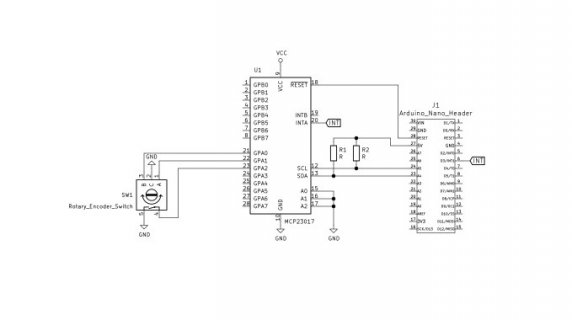DanieleFromItaly
Active member
HI guys, I'm trying to use this sketch: https://github.com/raspibo/I2C_rotary_encoder/blob/master/I2C_rotary_encoder.ino..
First of all, a basic sketch like this: https://github.com/adafruit/Adafruit-MCP23017-Arduino-Library/blob/master/examples/toggle/toggle.ino works fine, so teensy and mcp23071 are ok.
So, I'm using pin 23 for interrupt. First problem at line 192: EIFR = 0x01 (EIFR not defined in this scope), replaced with: PORTC_ISFR = CORE_PIN23_BITMASK but really don't know if is right. Anyway the sketch does not work; I see in console monitor "Startup" (line 118) then nothing
Interrupts & C. are alien thigs for me, please help.
Thanks,
Daniele.
First of all, a basic sketch like this: https://github.com/adafruit/Adafruit-MCP23017-Arduino-Library/blob/master/examples/toggle/toggle.ino works fine, so teensy and mcp23071 are ok.
So, I'm using pin 23 for interrupt. First problem at line 192: EIFR = 0x01 (EIFR not defined in this scope), replaced with: PORTC_ISFR = CORE_PIN23_BITMASK but really don't know if is right. Anyway the sketch does not work; I see in console monitor "Startup" (line 118) then nothing
Interrupts & C. are alien thigs for me, please help.
Thanks,
Daniele.


